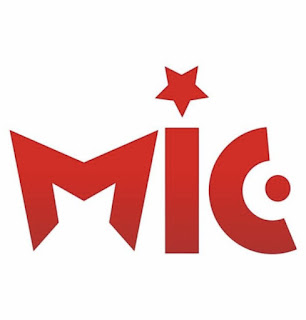Is culture crashing? Scott Timberg: Part 2 review
I often
tell my students that if they enjoy my lessons they should thank the rulers of
the former Soviet Union. When they start to laugh I tell them that the story
goes that the launch of the first Sputnik rocket in 1957 sent shock waves
through the intellectual class of the USA. How could the world´s greatest country
have been beaten into space by the USSR? The missing link, it was decided, was original
thinking, so a new generation of bright sparks needed to be produced in no time
at all. But how? Creativity was the
answer.
Thanks to
those lawmakers in the USA who expanded arts provision, the more genteel but
equally ambitious rulers in London followed obediently and introduced music and
drama courses at all levels of education in a way that was unthinkable a short time
before.
That
generation of creative minds was meant to restore prominence to The West not in
the arts themselves but in what really counted: geopolitical dominance. Of
course it was not called that then: lots of things changed their names over the
years and the decades.
Scott
Timberg nails it in his Culture Crash , The Killing of the creative class. In
Chapter 6 he describes how those early days when the creatives were to save The
Free World gave way to the view of those same persons as Idle Dreamers: the
curse of the creative class. He cites Dan Quayle, intellectual giant as he is, VP
that other man renowned for deep thought and er … well, maybe not. Anyway, he
cites Quayle as using the expression cultural elite as an insult in a speech in
1992 in California. I am not going to quote the passage, better you buy the
book for yourself, it´s worth it just to have yet another laugh at the mighty
thinking power of Messrs Q & B.
Mr Timberg
details how, while snide comments from people who know nothing like to describe
those in the creative industries as cosseted and privileged, the real
statistics show that earnings in this
field are lower than average incomes and working conditions are arduous and
precarious.
I enjoyed
Chapter 7: The end of print. It is a sad story that has been told many times
and it has to do not only with the technological revolution. More profoundly it
has to do with greed among business leaders and failure of governments to
regulate properly.
Yes the
digital dawn has played its part. Mr Timberg refers to the Guardian, a British
newspaper founded in 1821. Here´s a thing, my beloved father bought it even
when it was still called The Manchester Guardian. In 1959 they dropped the
local tag as it aspired to be a national newspaper, and so it was and so my
father bought it every day probably for 40 years even as the price rose from a
shilling to I suppose 60 pence. Now I read the Guardian and I dip into it
several times a day and find new stories constantly appearing, excellent
graphics and high quality writing and beautiful photographs. Yet not only am I
paying less in 2015 than my dear father paid in 1965, I am paying nothing at
all. No wonder its owners are losing money daily: as Mr Timberg remarks, the
Guardian continues to operate thanks to its almost unique support from the
trust which owns it.
Today, Will Hutton writes in the Guardian/Observer about different levels of internet
connectivity available in different parts of Britain. What is the good of
having all the world´s knowledge at your fingertips if the rate of download is
so slow as to be ineffective? How is there a broadening of democracy and an
increase of freedom if you access to information depends on the profit your
neighbourhood provides to the cable provider? These are big questions and not
all newspapers are prepared to ask, much less answer them.
Mr Timberg
makes an insightful comment about the loss of theatre and music critics in many
newspapers in recent years. He points out that specialist bloggers may well
write about local plays or concerts so apparently the loss of coverage in the
press is not significant. Yet, he says, the danger is that the arts “become a
tiny subculture, losing their connection to a mass middle-class public,
surrendering their ability to be discovered accidentally.”
I agree
totally, and I think the “ability to be discovered accidentally” is similar to
the effect of large numbers of school students taking musical instruments to
and from school daily. When it is seen as a natural thing to do to carry that strange
long box with a trombone, or that short
flat almost weightless case holding a violin, other students are much more
likely to adopt playing an instrument into their life than if selected students
attend specialist courses out of the normal
school routine.
Mr Timberg concludes that the artist and the
journalist, two groups of workers who are suffering, are committed to
uncovering the truth, be it of the human condition or of institutions. Truth,
no matter what the cost “is something we cannot live without.”
Looking
forward to reading the next chapters. Thank you Mr Timberg.
.JPG)


Comments
Post a Comment